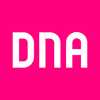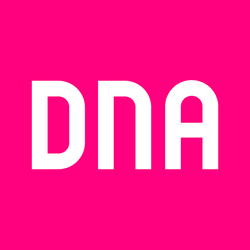Under-35-year-olds are most likely to restrict the time they spend on the Internet and on their phones – These are the most popular methods
25.8.2023 09:30:00 EEST | DNA Oyj | Press release

DNA’s annual survey of the digital lifestyles of 16–74-year-olds, their smart device usage and their attitudes towards smart devices shows that the likelihood that certain age groups restrict their phone and Internet use varies from year to year. This year, slightly less than one third of 16–24-year-olds and 25–34-year-olds have placed restrictions on the time they spend on the Internet and on their phones. However, the likelihood of people under 35 restricting their screen time may be falling slightly, as last year 34 per cent of 16–24-year-olds and 25–34-year-olds reported restricting their phone usage.
“Naturally, digital devices help us keep in touch, learn new things and keep ourselves entertained, and technology offers us a wealth of new opportunities. However, the time we spend away from our devices is also important because our brains need a chance to rest, and the digital world is non-stop. In younger age groups, we see both the upsides and downsides of digitality the clearest. They differ most dramatically from older age groups in their willingness to adopt digital services and in how strongly they experience the negative effects of digitality, such as reduced attention spans”, DNA’s CEO Jussi Tolvanen explains.
Overall, the trend of restricting screen time has remained fairly steady among Finns. This year, approximately 22 per cent of respondents reported restricting their screen time, compared to 24 per cent last year. Notable in the results is that 22 per cent of people aged 45–54 are now restricting their own phone and Internet use. Restricting these activities has become more common in this age group; 14 per cent restricted their phone use in 2022, while the proportion who restrict their Internet use has been hovering between 12 and 15 per cent for the last three years.
“The survey results show that restricting smart device usage has clearly become a normal aspect of consumer behaviour. In the big picture, there have been no significant changes in how likely people are to restrict their screen time, which means the trend has stabilised. Because of this, we would like to spread awareness and remind everyone about Disconnect Day, an opportunity to disconnect from your smart devices that we are organising again this October after its well-received debut last year”, Tolvanen says.
Alternative activities are the most common way of restricting screen time
The survey results show that, of people who restrict their screen time, almost half turn to alternative activities as their primary way of doing so. Other popular methods of disconnecting include enabling silent mode on one’s phone for at least part of the day (38%), restricting phone use before bed (34%) and disabling notifications for messages and emails (29%).
Breaking down people who restrict the time they spend on their phones or on the Internet by age group, we see that those aged 45–54 use a wider variety of methods to restrict the time they spend on their phones. For example, they report keeping their phones on silent at all times (36%) and only using their work phones during working hours (31%). Under-25s are more likely to use Do Not Disturb mode (26%) and restrict their daily social media application usage (23%).
DNA encourages all Finns to disconnect and spend time away from their devices by participating in the nation-wide Disconnect Day on 1 October 2023. Disconnect Day challenges everyone to put their devices away and focus on what matters most to them.
Find out more about Disconnect Day at dna.fi/alyvapaapaiva
DNA’s Digital Life survey
The Digital Life survey, produced jointly by DNA and Nepa, was conducted using an online panel from 18 April to 3 May 2023. Its aim is to find out how Finns use different digital services as well as their experience regarding digital inclusion. One thousand Finns aged 16 to 74 years responded to the annual survey. The survey has been conducted since 2013.
Check out the DNA Digital Life survey in full here (in Finnish only)
Media enquiries:
DNA Corporate Communications, tel. +358 44 044 8000, viestinta@dna.fi
Keywords
Images
Links
About DNA Oyj
DNA is one of the leading telecommunications companies in Finland. Our purpose is to connect you to what matters most. We offer connections, services and devices for homes and workplaces, contributing to the digitalisation of society. Already for years, DNA customers have been among the world leaders in mobile data usage. DNA has about 3.6 million subscriptions in its fixed and mobile communications networks. The company has been awarded numerous times as an excellent employer and family-friendly workplace. In 2022, our total revenue was EUR 997 million and we employ about 1,700 people around Finland. DNA is a part of Telenor Group, a leading telecommunications company across the Nordics. More information: www.dna.fi, Twitter @DNA_fi, Facebook @DNA.fi and LinkedIn @DNA-Oyj.
Subscribe to releases from DNA Oyj
Subscribe to all the latest releases from DNA Oyj by registering your e-mail address below. You can unsubscribe at any time.
Latest releases from DNA Oyj
Huijausyritysten määrä pysyy korkeana – DNA esti yli 8,5 miljoonaa viime vuonna9.2.2026 09:00:00 EET | Tiedote
Huijaustavat monimuotoistuvat ja operaattorit taistelevat niitä vastaan päivittäin. DNA esti yhteensä yli 8,5 huijausyritystä vuoden 2025 aikana. Yhtiö esti yhteensä yli 4,2 miljoonaa huijauspuhelua ja lähes 4,4 miljoonaa huijaustekstiviestiä viime vuonna. Operaattorit ja pankit ottivat viime vuonna käyttöön uuden yhteistyömallin, jossa nettiliikenne huijaussivustoille voidaan sulkea nopeasti. Yhteistyöllä pyritään vähentämään huijausviestien vaikutuksia.
The number of fraud attempts remains high – DNA prevented over 8.5 million last year9.2.2026 09:00:00 EET | Press release
Fraud methods are becoming more diverse, and operators are fighting against them daily. In 2025, DNA prevented over 8.5 million fraud attempts. The company blocked over 4.2 million fraudulent calls and nearly 4.4 million fraudulent text messages last year. Operators and banks implemented a new cooperation model last year that allows for the rapid shutdown of internet traffic to fraudulent websites. This collaboration aims to reduce the impact of fraudulent messages.
Viruskausi on päällä ja pöpöt jylläävät – DNA:n asiantuntijalta viisi vinkkiä puhelimen pitämiseksi puhtaana6.2.2026 14:19:33 EET | Tiedote
Puhuttaessa viruksista samassa virkkeessä älylaitteiden kanssa viitataan usein tietoturvaa uhkaaviin haittaohjelmiin. Troijalaisilta sietääkin suojautua, mutta sama pätee myös reaalimaailman viruksiin ja bakteereihin, varsinkin nyt, kun pöpöt ovat liikkeellä. DNA:n laitemyynnin osastopäällikkö Jesse Kieksi kertaa muistisäännöt puhelimen hygieniasta huolehtimiseen.
DNA Oyj:n loka–joulukuun 2025 liiketoimintakatsaus: Liikevaihto ja kannattavuus jatkoivat kasvua6.2.2026 08:30:00 EET | Tiedote
Vuosi 2025 oli DNA:lle taloudellisesti hyvin menestyksekäs. Vuoden viimeisellä neljänneksellä niin liikevaihto, palveluliikevaihto, käyttökate kuin liikevoittokin kasvoivat edellisvuodesta, kuten myös matkaviestinverkon sekä kiinteän laajakaistan liittymämäärät ja keskilaskutus.
DNA Plc’s Business Review for October–December 2025: Revenues and profitability continued to grow6.2.2026 08:30:00 EET | Press release
The year 2025 was financially very successful for DNA. In the final quarter, total revenues, total service revenues, EBITDA, and EBIT all increased from the previous year. Subscription numbers and average revenue per user in both the mobile network and fixed broadband also continued to grow.
In our pressroom you can read all our latest releases, find our press contacts, images, documents and other relevant information about us.
Visit our pressroom


